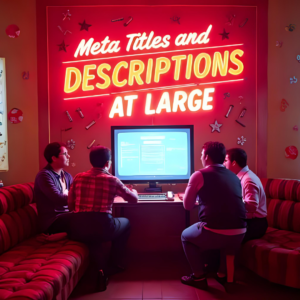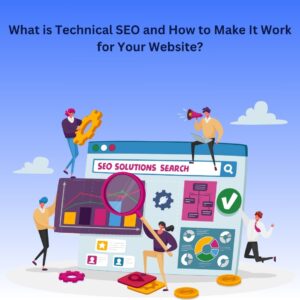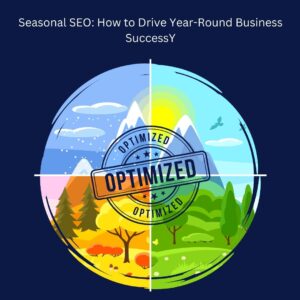Artificial intelligence is everywhere these days, and SEO is no exception. As someone who’s been watching this space evolve, we can see how AI tools are making SEO workflows faster and more efficient. But here’s the thing – while AI can supercharge your optimization efforts, it hasn’t replaced the need for human insight and strategy.
This piece from Indexed Zone SEO dives into what elements are foundational for SEO with AI. We’ll explore how to use AI for SEO in ways that actually move the needle, where human expertise still matters most, and how to create strategies that deliver real, measurable results.
How to Use AI for SEO: Your New Best Friend
Let’s get one thing straight – AI should enhance your SEO game, not run it completely. Understanding how to use AI for SEO means knowing where it excels (data crunching, spotting patterns, handling repetitive tasks) and where you still need that human touch for creativity and strategic thinking.
Here’s where AI really shines in SEO:
- Lightning-fast analysis: AI can process massive amounts of data in minutes that would take humans hours or days.
- Pattern spotting: It’s incredible at finding keyword opportunities and user behavior trends you might miss.
- Task automation: Perfect for handling the repetitive stuff like meta tag optimization, keyword placement suggestions, or internal link recommendations.
But here’s what we learned from working with these tools – they need babysitting. Without human oversight, AI-generated content often sounds like it was written by a robot (because it was), misses important context, or completely fails to connect with your actual audience.
What Elements Are Foundational for SEO With AI
When people ask what elements are foundational for SEO with AI, the answer is that while AI can assist with virtually every aspect of SEO, the foundational elements still need that human strategic thinking. Knowing how to SEO with AI isn’t just about having the right tools – it’s about combining AI insights with real expertise.
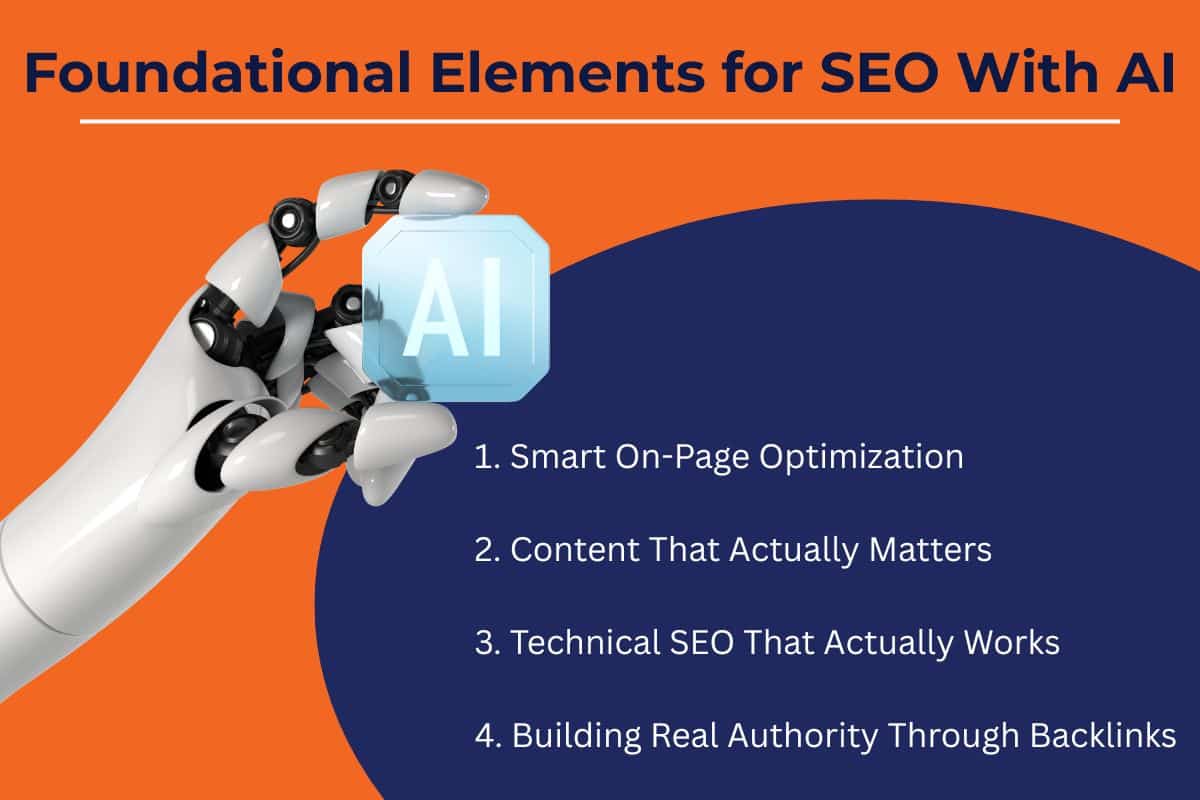
1. Smart On-Page Optimization
Curious about how to use AI for on-page SEO? Tools like Surfer SEO and SEMrush are game-changers for identifying keyword gaps, flagging meta tag problems, or suggesting internal linking opportunities. But here’s where you come in – crafting headlines that actually grab attention, structuring content that flows naturally, and making sure keywords feel organic rather than stuffed in awkwardly.
Think of AI as your research assistant, not your copywriter. It gives you the data; you make it sing. That’s the secret to learning how to SEO with AI effectively.
2. Content That Actually Matters
Sure, AI can pump out content faster than any human writer. But speed without substance? That’s a recipe for disaster. Human editing remains absolutely critical for:
- Keeping your brand voice consistent and authentic
- Making sure content actually answers what users are searching for
- Eliminating generic fluff that adds zero value
Search engines are getting smarter about rewarding genuinely helpful, original content. AI can give you a starting point, but only humans can deliver the depth, trustworthiness, and clarity that both readers and search engines crave. This is especially important when considering is AI content good for SEO.
3. Technical SEO That Actually Works
AI tools like DeepCrawl and Botify are fantastic for spotting technical issues – crawl errors, mobile problems, broken links, you name it. They’re like having a tireless auditor working 24/7. But fixing these issues? That still requires human decision-making. For instance, an AI might flag a redirect chain, but an experienced SEO professional knows how to restructure the URL architecture strategically. Can AI do SEO? Absolutely – but as your partner, not your boss.
4. Building Real Authority Through Backlinks
Can AI help with SEO when it comes to link building? Yes, but with limitations. AI excels at identifying potential link opportunities and analyzing competitor backlink strategies. However, building genuine authority still requires strategic outreach, creating link-worthy content, and evaluating relevance – all tasks that need human judgment and relationship-building skills.
Can AI Replace SEO? Not Even Close
Let me be crystal clear about this: No, and I don’t think it ever will.
The questions “Can AI replace SEO?” and “Is SEO dead with AI?” pop up constantly in our industry. But here’s the reality – AI is a powerful tool, not a replacement for strategic thinking. SEO requires creativity, intuition, and the ability to adapt to constant algorithm changes – capabilities that AI simply doesn’t possess on its own.
Want to stay competitive? You need to pay attention when hiring SEO experts who understand how to leverage AI tools while bringing genuine marketing expertise to the table.
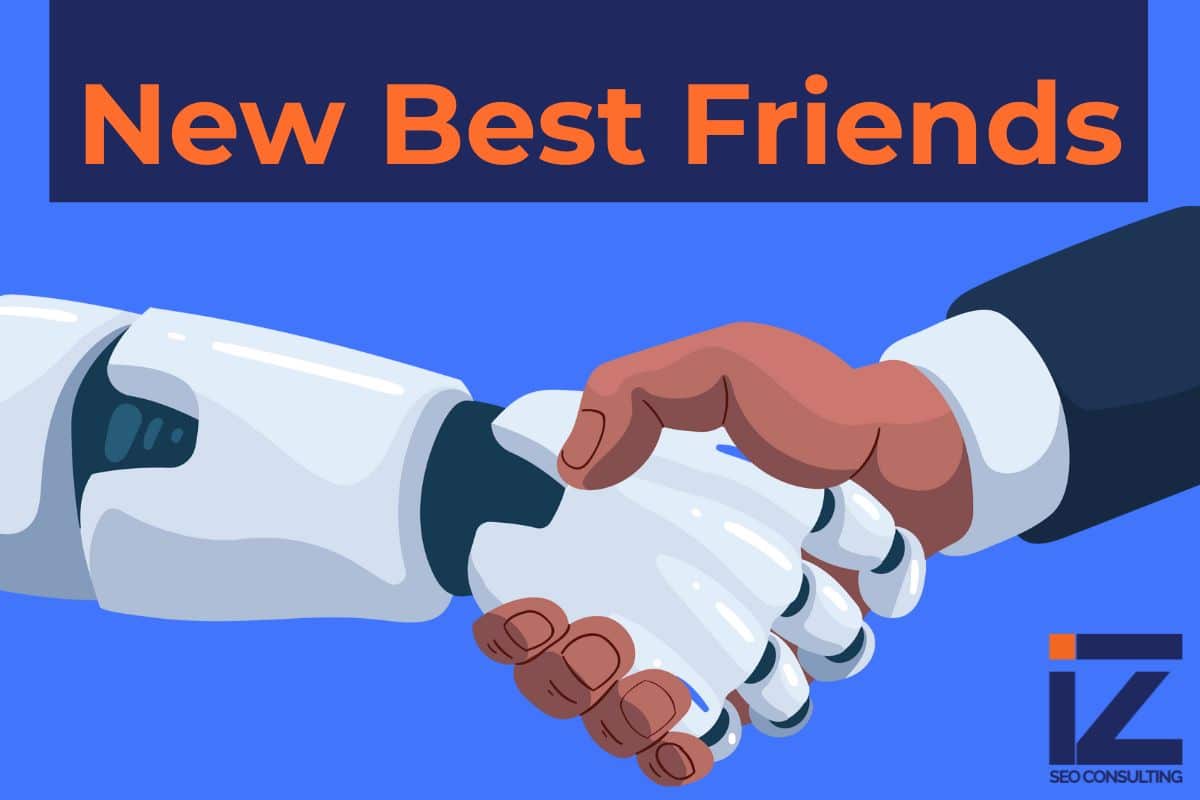
How AI Is Changing SEO (And Why That’s Exciting)
Don’t get me wrong, how AI is changing SEO is pretty remarkable. Here’s what’s genuinely transformative:
- Keyword research on steroids: Tools like Clearscope and SEMrush can identify emerging trends before they hit mainstream awareness.
- Predictive insights: AI can forecast search behavior changes, helping you stay ahead of the curve. Understanding which AI tools to use for predictive SEO suggestions can give you a significant competitive advantage.
- Analytics at scale: Real-time insights on traffic patterns, engagement metrics, and ranking fluctuations that would be impossible to track manually.
The key is that these benefits only translate to real results when combined with human strategic thinking. SEO professionals know which trends are worth pursuing and how to act on insights effectively.
4 Real-World Steps to Leverage AI for Better SEO
Ready to boost your SEO using proven strategies? Here’s how to do it right:
- Use AI for data analysis, but always validate insights before implementation
- Embrace predictive SEO tools to anticipate trends and user behavior shifts
- Prioritize content quality over quantity – publish strategically, not just frequently
- Integrate AI insights with your broader marketing strategy, including understanding the value of Google campaigns
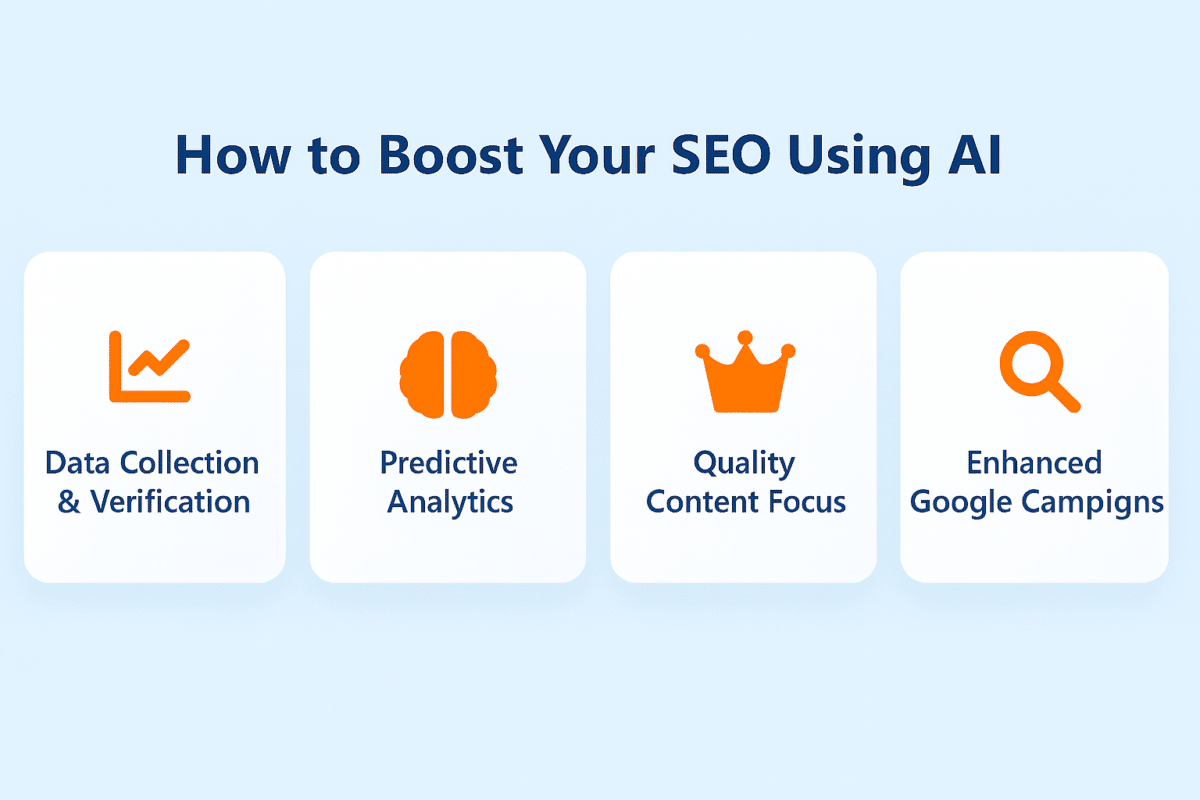
AI can highlight what needs attention, but human strategy determines the action plan. That’s how to use AI for SEO in ways that create sustainable, long-term growth.
The Pitfalls of Over-Relying on AI
Does using AI affect website SEO negatively? It absolutely can when you go overboard.
Here are the main risks I’ve observed:
- Generic, soulless content that fails to engage real humans
- Misaligned recommendations that conflict with Google’s latest algorithm preferences
- Lost brand authenticity when you prioritize speed over genuine value
Remember, AI is your assistant, not your strategist. Successful SEO always requires expert human input and oversight.
The Sweet Spot: Human-AI SEO Partnership
The most effective approach combines human expertise with AI capabilities. Whether you’re optimizing technical elements, creating compelling content, or adapting to Google’s latest updates, skilled SEO professionals using smart tools consistently deliver the strongest results.
Looking for sustainable growth? Learn how to get discovered using SEO through a human-led strategy enhanced by AI execution.
Common Questions About AI and SEO
Is SEO dead with AI?
Not at all. SEO is evolving alongside AI, not disappearing. AI enhances the optimization process, but humans still drive strategic decisions.
Can AI do SEO completely?
Not really. AI handles specific tasks like data analysis and content suggestions, but effective SEO requires human strategy and creativity.
Is AI content good for SEO?
It can be valuable when properly edited for clarity, quality, and user relevance. Raw AI content rarely performs well.
Does using AI affect website SEO?
Overusing unedited AI content can hurt your rankings. The key is finding the right balance between automation and human oversight.
Which AI tools are used do predictive SEO suggestions?
Clearscope, SEMrush, and BrightEdge are excellent for forecasting trends and optimizing content. Just remember to align their suggestions with your specific business goals.
How AI is changing SEO?
By enabling faster keyword research, more sophisticated optimization techniques, and better user intent analysis.
Can AI help with SEO for local businesses?
Definitely. AI tools can track local search patterns, optimize Google My Business profiles, and suggest location-specific keywords.
Can AI replace SEO?
No. AI supports SEO efforts but cannot replace human-driven strategic thinking and creativity.
Ready to Get Started?
For expert guidance on AI-powered SEO strategies, check out these top questions to ask SEO consultants when choosing the right partner.
By understanding what elements are foundational for SEO with AI and applying these principles thoughtfully, you’ll develop smarter, more resilient strategies that evolve with the future of search. Master how to use AI for SEO while maintaining the human expertise that makes all the difference.

